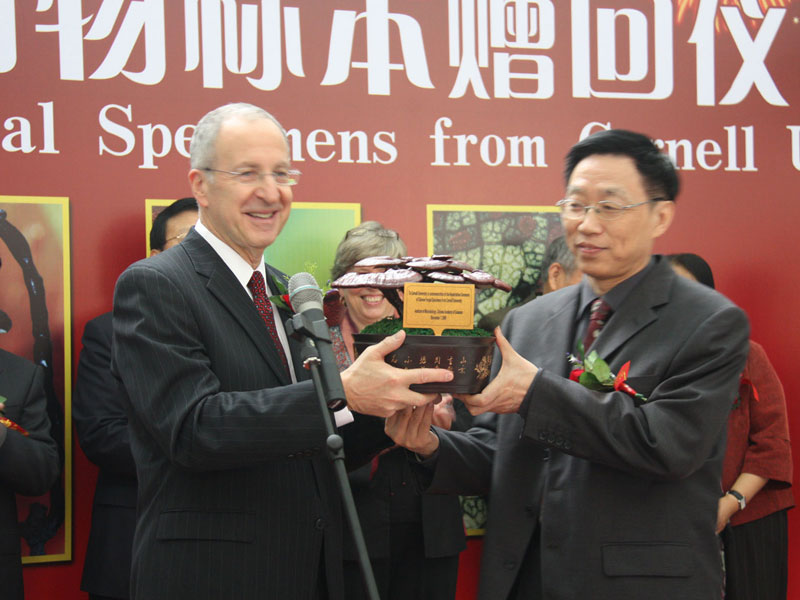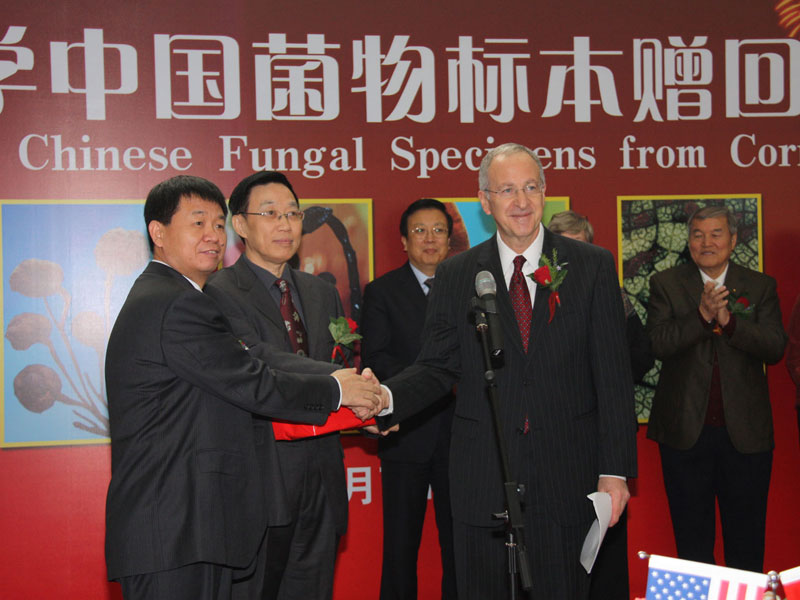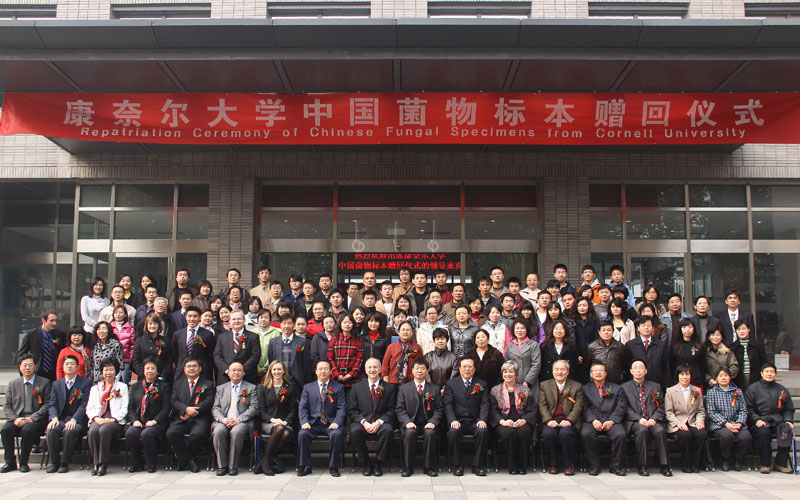Celebrating the 10th anniversary of Cornell’s repatriation of precious fungi collection to China
by Kathie Hodge, Associate Professor, School of Integrative Plant Science, Plant Pathology and Plant-Microbe Biology Section
November 2019 marks the tenth anniversary of Cornell’s return of a precious collection of preserved fungi to China. These dried specimens provide an invaluable record of the biodiversity of fungi in China, collected and identified by a father of Chinese mycology: Cornell alumnus Deng Shuqun (then transliterated as S.C. Teng). The fungi were originally sent to Cornell in 1940, in part to protect them during the Japanese occupation. Transported by ox-cart and by sea from China to the US, the collection remained in the safekeeping of the Cornell Plant Pathology Herbarium until 2009, when months of diplomacy and preparation led to the return of 2278 specimens to the Chinese Academy of Sciences in Beijing.
Deng Shuqun was born in Minxian (now Fuzhou) on 12 December 1902 and graduated from Tsinghua College in 1923. Completing a Master’s degree at Cornell in 1926, he then started on a doctoral program on fungi with Cornell professors H.H. Whetzel and H.M Fitzpatrick. He returned to China to take up a professorship in 1928 without completing his Cornell PhD. In the volatile years following, he moved among different academic institutions, continuing his seminal studies of fungi until he was imprisoned during the Cultural Revolution in 1955. His work until that time documented the biodiversity of fungi in China through many papers and his English-language book, A Contribution to Our Knowledge of the Higher Fungi of China (1939). In 1996, Cornell Professor Richard P. Korf celebrated Deng’s accomplishments by compiling an expanded edition, titled Fungi of China.
In addition to celebrating Deng’s work, return of the Cornell specimens to China now facilitates their study by Chinese scholars and students of mycology, the science of fungi. Recently Dr. Di Li published a fascinating article tracing Deng’s life and significant contributions to mycology in China. Deng will be one of four influential Chinese scientists profiled in a forthcoming Timber Press book on Herbaria by Dr. Barbara Thiers of the New York Botanical Garden.
Here in Ithaca, the Cornell Plant Pathology Herbarium recently welcomed a new Curator, Dr. Teresa Iturriaga. A Cornell alumna who completed her doctoral work with Professor Richard Korf, Dr. Iturriaga is an expert on cup fungi, and was for many years a Professor of Mycology at Simon Bolivar University in Venezuela. The Herbarium is working through CUP Director Professor Kathie Hodge to raise funds to replace the century-old cabinets at CUP and to renovate its antique fungus dryers, through which so many historic specimens have passed. Professor Kathie Hodge continues to teach impactful classes on fungi, including the large class Magical Mushrooms, Mischievous Molds, which attracts over 300 students each Spring. Research on a newly described disease of apple fruits, Paecilomyces rot, is progressing - so far the disease has been detected only in New York and in China!



(Photos are courtesy of the Chinese Academic of Sciences and portray then-Cornell President David Skorton at the November 2009 fungi repatriation ceremony in Beijing).
Learn more here in a former Cornell Chronicle article from November 2009: Cornell returns collection of rare fungi to China

